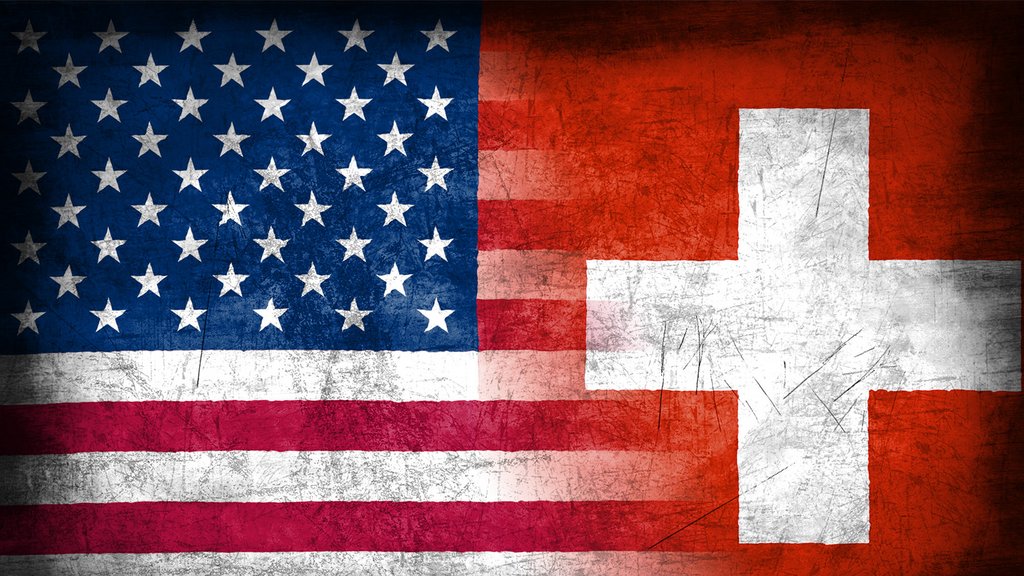Opinions - 23.01.2018 - 00:00
Free-trade agreement with the USA: A missed opportunity for Switzerland?
The upcoming visit of US President Donald Trump to the WEF is a good opportunity for sounding out potential trade relations between Switzerland and the USA. By Reto Föllmi and Stefan Legge.

23 January 2018. The USA is Switzerland’s second most important sales market after Germany. For the USA as well, Switzerland is a significant trading partner and is currently ranked number 12 when export and import volumes are combined.
There is basically great potential in the expansion of trade relations with the USA, as pointed out recently by Economiesuisse. Negotiations with respect to a Swiss-US free-trade agreement were broken off by Switzerland in 2006. In view of the rhetoric of the current US President and his "America first" doctrine, a fresh attempt to bring about a Swiss-US free-trade agreement appears some distance away. So has Switzerland missed out on a big opportunity?
In 2016 the Federal Customs Administration recorded imports with a total value of CHF 266 billion and exports of CHF 298 billion. Of the imports, CHF 24 billion, a good 9 per cent, came from the United States. In return, exports worth CHF 36 billion made their way to the USA.
In view of the customs figures alone, one might conclude that free trade already exists to a large extent between Switzerland and the USA. For the imports in 2016, a total of CHF 35.4 million, or 0.15 centimes per franc, was paid out to customs. This figure is so small because CHF 18.8 billion, or 78 per cent of the total import value, was completely duty-free.
High customs barriers for individual sectors
However, individual sectors face high customs barriers. For example, average duties of 42.1 per cent were charged on milk products. Given this high import barrier, the volume of imports was low at CHF 10.5 million. The high duties on agricultural products can be contrasted with the average rate of 0.15 per cent on imports of mainly industrial goods, which amounts to over CHF 21.7 billion.
On both sides of the Atlantic, duties of less than 5 per cent apply for most product groups. In the event of the complete abolition of duties, Swiss exports would save well over CHF 100 million if one multiplies the average tariff with Swiss exports to the USA per product group. In this calculation, it is evident that the watch and clock industry (CHF 2.1 billion in exports with duties of CHF 77.7 million) would be among the sectors to benefit from a free-trade agreement.
Duties not the only barrier to trade
However, duties are by no means the only barrier to trade. The Global Trade Alert shows that many countries are increasingly relying on non-tariff-related trade barriers to protect domestic industries. A comprehensive agreement would thus also involve the standardization of industrial standards, procedures and regulations. A free-trade agreement with the USA offers Switzerland an opportunity to improve access to an important sales market.
Important trading partners and competitors like the European Union are striving for just such agreements. It may be true that negotiations about a comprehensive Transatlantic Trade and Investment Partnership (TTIP) are currently on ice – partly due to the current US administration – but the agreement with Canada (CETA) and that with Japan both show that Switzerland is facing a challenge. Switzerland’s small size could even be an advantage with respect to successful negotiations in this circumstance – because the alleged US job losses would be limited in the event of an agreement with Switzerland.
Reto Föllmi is Full Professor for International Economic Relations at the Swiss Institute for International Economics and Applied Economic Research (SIAW-HSG).
Stefan Legge, Ph.D., is Lecturer for International Economics at the Swiss Institute for International Economics and Applied Economic Research (SIAW-HSG).
Picture: Fotolia / Onur
More articles from the same category
This could also be of interest to you
Discover our special topics
















